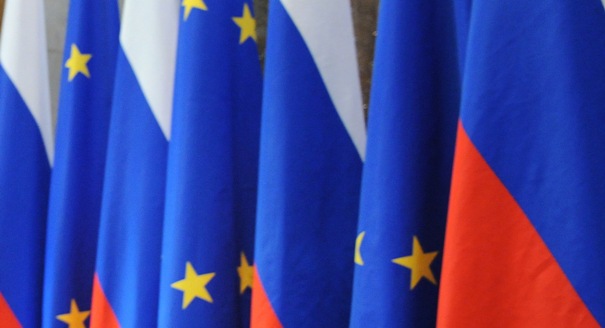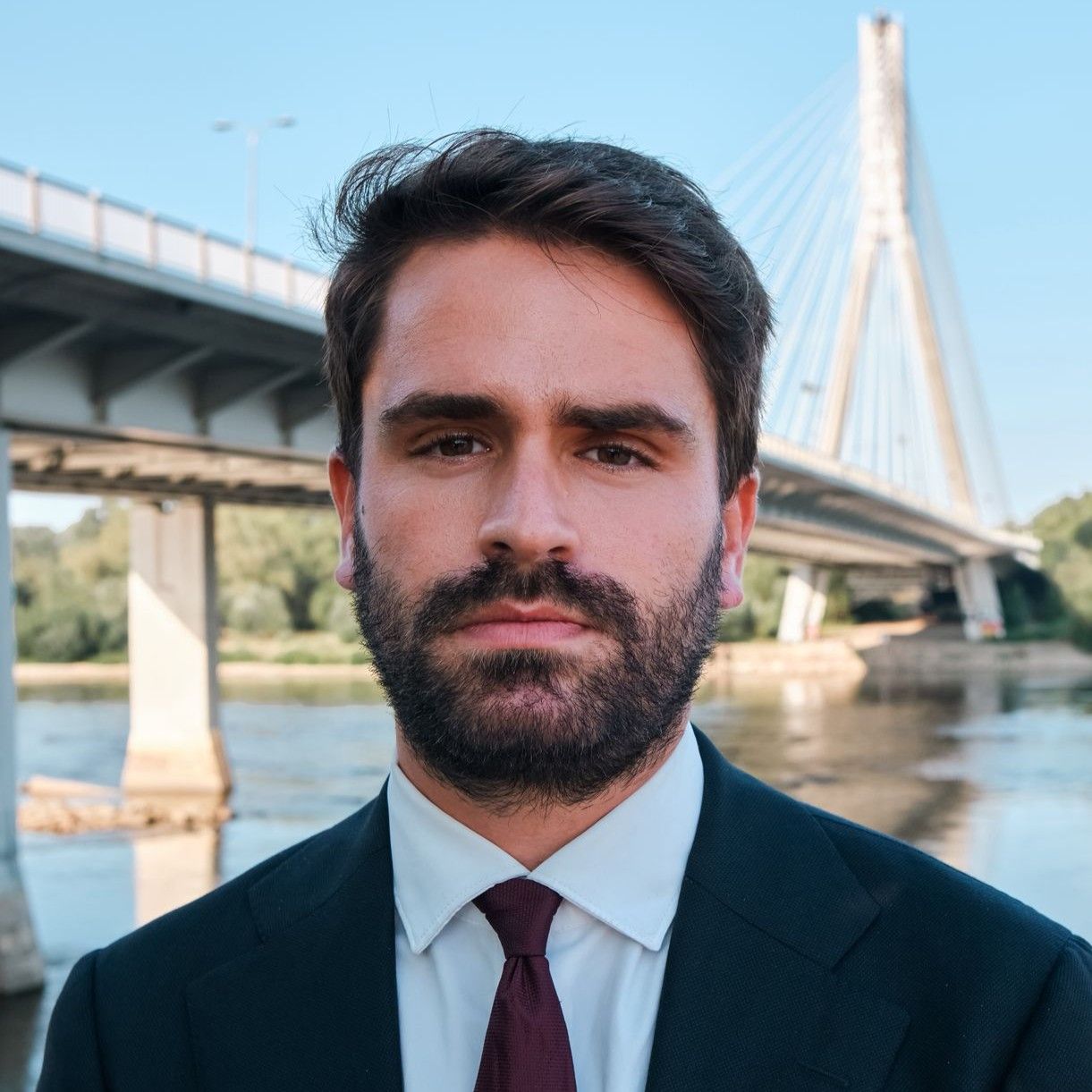As European leadership prepares for the sixteenth EU-India Summit, both sides must reckon with trade-offs in order to secure a mutually beneficial Free Trade Agreement.
Dinakar Peri
{
"authors": [
"Dmitri Trenin"
],
"type": "commentary",
"blog": "Strategic Europe",
"centerAffiliationAll": "",
"centers": [
"Carnegie Endowment for International Peace",
"Carnegie Europe",
"Carnegie Russia Eurasia Center"
],
"collections": [],
"englishNewsletterAll": "",
"nonEnglishNewsletterAll": "",
"primaryCenter": "Carnegie Russia Eurasia Center",
"programAffiliation": "",
"programs": [],
"projects": [],
"regions": [
"Central Asia",
"Kazakhstan",
"Russia",
"Eastern Europe",
"Ukraine",
"Western Europe",
"Belarus",
"Europe",
"Asia"
],
"topics": [
"Foreign Policy",
"EU"
]
}
The notion of progressively closer ties between Russia and the EU is no longer viable. Brussels urgently needs to develop a new set of objectives and strategies toward Moscow.
The EU-Russia summit that was scheduled for last fall has been delayed and scaled down. On January 28, Russian President Vladimir Putin will travel to Brussels for one day only, and with a smaller delegation than initially planned. Instead of a detailed discussion involving a number of officials on both sides, the bulk of the time will be taken up by the question: What is the future of the EU-Russia relationship? That relationship, which looked so promising twenty and even ten years ago, is visibly in trouble today.
For the time being, neither side appears to have the answer. The Europeans, stung by Ukraine’s spectacular failure last November to sign a trade and association agreement with the EU, are discussing punitive actions against Moscow. The Russians, for their part, besides gearing up for the next round of the “battle for Ukraine,” are focused on finalizing the preparations for launching a Eurasian Union, Putin’s main foreign policy project.
The conversation in Brussels later this month is unlikely to produce much agreement. Rather, it may allow Putin to be even more frank with his hosts than before, and tell them what he really thinks of them and their policies. The Europeans will offer their own criticisms, but hardly anything that the Russians have not heard before. After the encounter, the European Union and Russia will probably drift even farther apart.
This may be the last meeting of the current EU leadership with the Russian president. It is highly debatable whether holding another summit in late spring or early summer makes sense. By the end of 2014, the EU will have a new team at the helm, and at some point they will need to meet their Eastern neighbor. It is that meeting, maybe a year away, that will have to look to the future.
A lot will depend on what kind of leadership emerges in the EU. It is an open secret that the Kremlin has sometimes viewed the current crop of leaders with disdain. If the union puts up a really strong team, commanding personal respect within Europe and worldwide, that will be immediately noticed in Moscow.
Even more important, though much longer-term, will be what kind of EU emerges in postcrisis Europe. Will the union become more of a strategic player, guided by a sense of priorities, with strategies and policies to support them? How will the leaders of the Brussels-based institutions and the member states interact? Will Germany lead with the support of others, or will it continue to abstain?
The issues on the other side of the EU-Russia relationship are equally momentous. With the signature of the Eurasian Union treaty planned for spring 2014, it would be logical for the “Eurasians” to seek to speak with the Europeans in a bloc-to-bloc format. That kind of dialogue is at the heart of Putin’s binary “Greater Europe” formula, designed to put Russia on an equal footing with the European Union. However, here too there are serious questions that need to be answered.
What kind of a Eurasian Union will be agreed upon; what will be its scope; and what powers will its bodies have? At last December’s summit of the Eurasian customs union, launched in 2010 as a first step toward broader economic union, Kazakhstan and Belarus pushed back against what they saw as Moscow’s attempt to construct an organization with competences reaching beyond economic issues. They also objected to the proposed union being too dominated by Russia. Sharing sovereignty and delegating authority will therefore be tough issues in the East in the coming weeks and months.
Currently, the EU is rather skeptical toward Eurasian integration, and will not be in a hurry to recognize Russia’s growth in geopolitical stature. Brussels is certainly unlikely to immediately embrace the new union by establishing an institutional relationship with it. Summits between the European Union and the Eurasian Union are a long way off, to say the least. For the time being, the European Union will be stuck with Russia.
The EU needs to do three things to take EU-Russia relations forward. The first is to deal with the day-to-day, mainly technical issues, such as trade disputes, customs procedures, and technical standards. The second is to control the risks of collision with Moscow in the common neighborhood, particularly in Ukraine.
The third and most important—crucial, even—is to develop a new set of objectives and strategies toward Russia, given that the idea of Russia’s progressively closer association with the EU, as enshrined in a number of agreements over the last twenty years, is no longer operable. The coming change of EU leadership makes that task both propitious and urgent.
Carnegie does not take institutional positions on public policy issues; the views represented herein are those of the author(s) and do not necessarily reflect the views of Carnegie, its staff, or its trustees.
As European leadership prepares for the sixteenth EU-India Summit, both sides must reckon with trade-offs in order to secure a mutually beneficial Free Trade Agreement.

Dinakar Peri
The hyper-personalized new version of global sphere-of-influence politics that Donald Trump wants will fail, as it did for Russia. In the meantime, Europe must still deal with a disruptive former ally determined to break the rules.

Thomas de Waal
2026 has started in crisis, as the actions of unpredictable leaders shape an increasingly volatile global environment. To shift from crisis response to strategic foresight, what under-the-radar issues should the EU prepare for in the coming year?

Thomas de Waal
A renewal of relations between France and Turkey is vital to strengthen European strategic autonomy. To make this détente a reality, Paris and Ankara should move beyond personal friction and jointly engage with questions of Black Sea security.

Romain Le Quiniou
Europe is designing a new model of collective security that no longer relies on the United States. For this effort to succeed, solidarity between member states that have different threat perceptions is vital.

Erik Jones